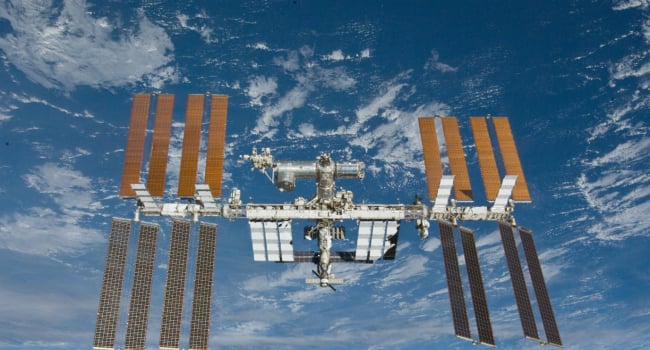
NASA assigned SpaceX the task of landing ISS from space and will pay $843 million for it
According to NASA, the creation of a tug to deorbit the ISS has been entrusted to SpaceX. The company will receive $843 million for this task, not including the costs for preparing and launching the tug. However, this will not happen until commercial orbital stations are ready, which may be after 2030, Space.com reports.
Various statements suggest that Russia may cease support for the ISS as early as 2028. Therefore, the questions of station operation after this period, as well as responsibility for deorbiting and ocean disposal, will fall to NASA and its closest partners. It should be noted that it is not yet clear whether SpaceX will deorbit the entire station or only the American segment—there have been previous proposals to separate the station at the end of its service life and deorbit parts individually.
"The choice of an American deorbiting vehicle for the International Space Station will help NASA and its international partners ensure a safe and responsible deorbit from low Earth orbit at the end of the station's mission. This decision also supports NASA's plans for future commercial endeavors and allows continued use of low Earth orbit space," said Ken Bowersox of NASA, Deputy Administrator for the Space Operations Mission Directorate at the agency's headquarters in Washington.
Preliminary deorbiting of the ISS is expected in 2030, but "nothing magical will happen," as the agency explained, if the station continues to operate after 2030. In fact, the ISS will be maintained until commercial orbital stations are ready, which may take some time. "We want [the commercial stations] to provide support, and then, when they are ready for launch, that is when the ISS will step aside," the agency explained.
Several commercial space stations are currently in various stages of development. For example, Axiom Space is developing its Axiom station, while Blue Origin is planning its own station known as Orbital Reef, in collaboration with Sierra Space, Boeing, and Amazon. Voyager Space also has its Starlab complex, developed with the help of Lockheed Martin and Northrop Grumman. Additionally, the California-based company Vast Space plans to launch its Haven-1 module into orbit in 2025 aboard a SpaceX Falcon 9 rocket.
- Related News
- NASA releases video simulation of flight to Pillars of Creation
- Samples taken from Moon՛s far side for first time have been removed from capsule and sent for study
- Powerful flare occurs in active part of Sun: What effect did it have on earth?
- China makes a historic breakthrough: Chang'e-6 probe delivers soil samples from the far side of the Moon
- NASA admits it cannot protect the Earth from asteroid collision
- Debris of Chinese rocket fell near the settlement (video)
- Most read
month
week
day
- Jelly Max: World's smallest 5G phone 976
- China makes a historic breakthrough: Chang'e-6 probe delivers soil samples from the far side of the Moon 909
- OnePlus Pad Pro: World's first Snapdragon 8 Gen 3 tablet costs just $400 855
- YouTube adds several new features at once 827
- Samsung has overtaken Apple in US smartphone sales 800
- Apple to replace half of iPhone assembly line workers with robots 771
- How and why is artificial intelligence worsening climate on Earth? 759
- Insider publishes photos of Galaxy Watch 7, Watch Ultra, Buds 3 and Buds 3 Pro 2 weeks before presentation 747
- Why won't older iPhones and Vision Pro get AB support? Apple's clarification 717
- 6100mAh, 100W, IP65, 24GB RAM and Snapdragon 8 Gen 3։ OnePlus Ace 3 Pro’s specs are known 710
- Archive
